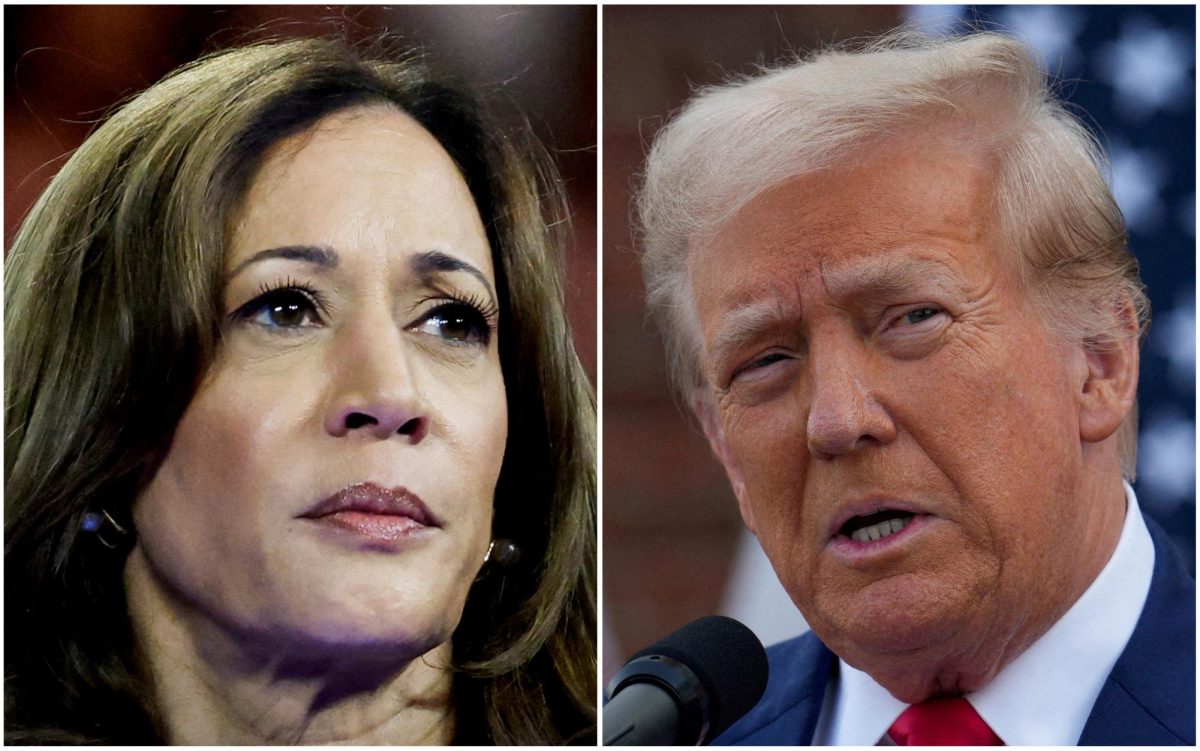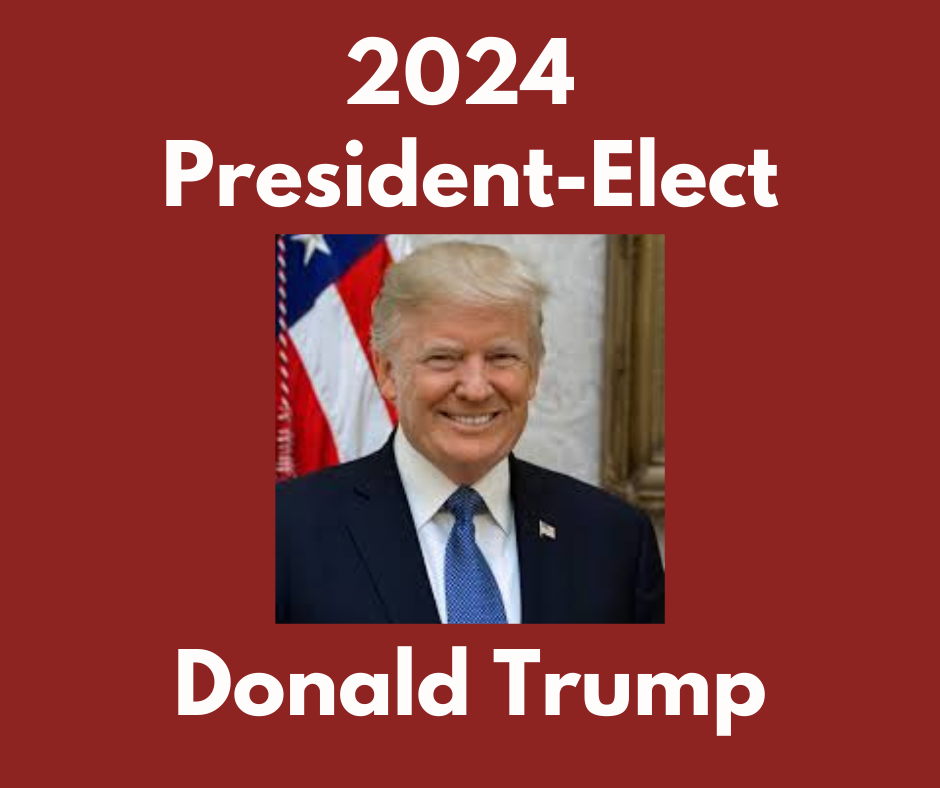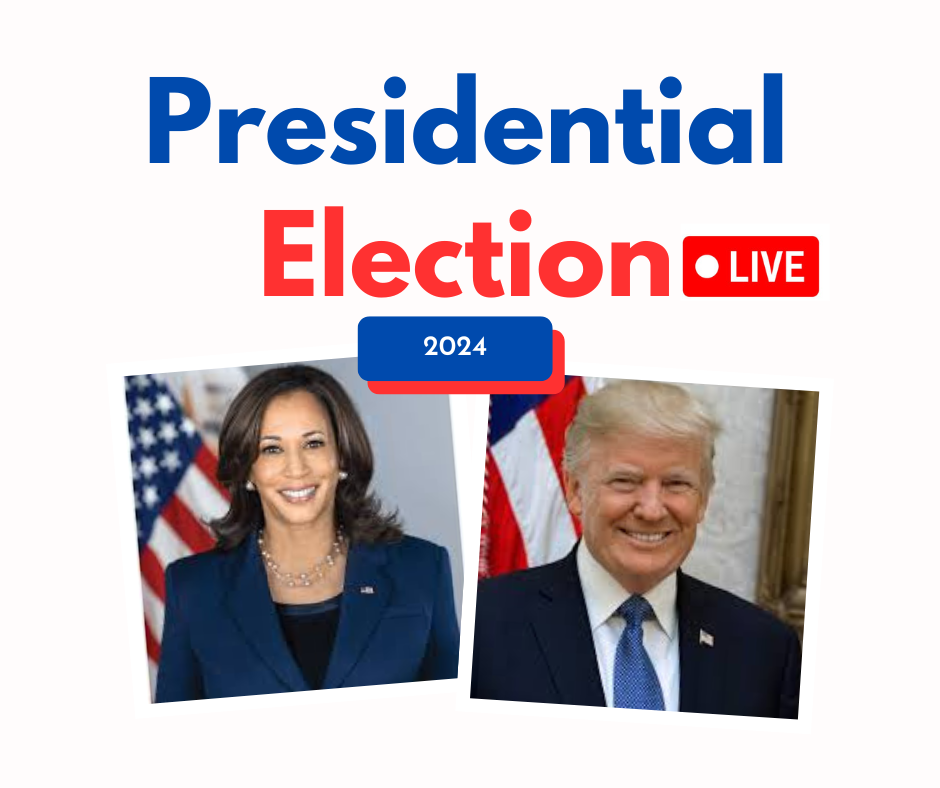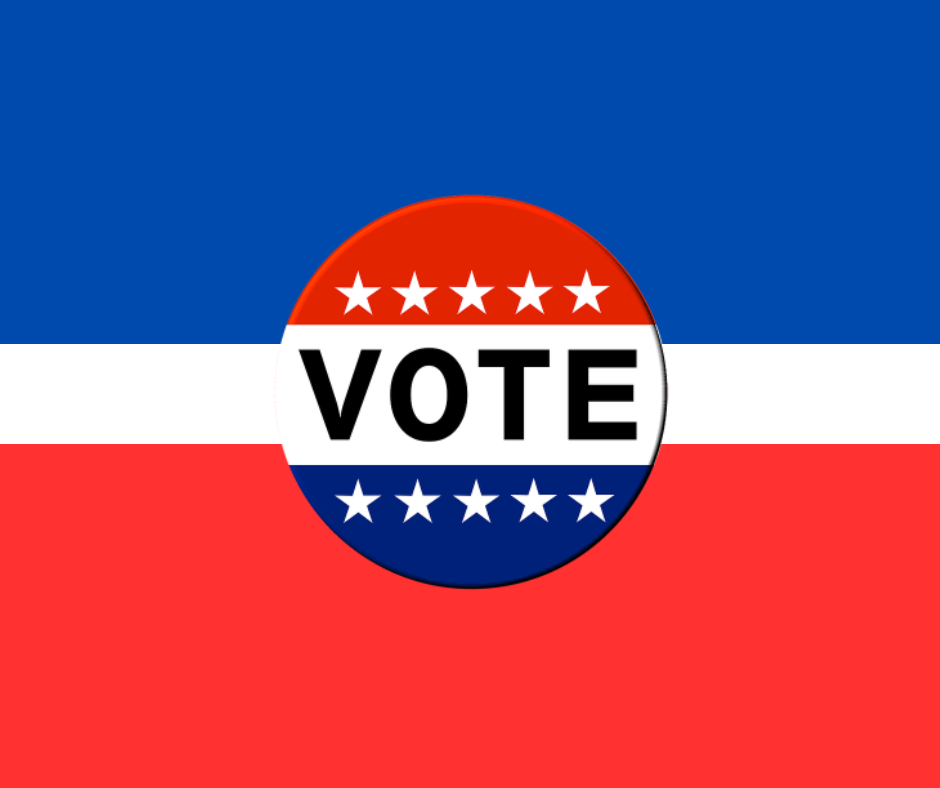- Who are ‘Faithless Electors’”?
-
- Faithless electors are members of the electoral college who promise to vote for one candidate, and then vote for another candidate. The elector is supposed to vote for the candidate that won the popular vote in their state. An example of a faithless elector would be if the representative from Pennsylvania pledged to vote for Kamala Harris, and then voted for Donald Trump.
- What else is on the ballot in PA this year?
- There are no statewide ballot measures this year, but some voters may see local ballot questions. East Whiteland Township in Chester County, for example, will see some. You can check with your county election office to be sure (State and local election offices | USAGov ). For more information on who all is on your ballot in Pennsylvania, check out Pa. Election 2024: A Complete Guide to Who Is on the Ballot, When to Vote, How to Vote & More | State College, PA
- Where do I vote if I live on a collage campus?
- Most RMU students who are registered to vote at their campus address will vote at Robin Hill Park Carriage House, 949 Thorn Run Road, Coraopolis, PA 15108. Regardless of where you live, polling places are predetermined. Pennsylvania residents can go to https://www.pavoterservices.pa.gov/pages/pollingplaceinfo.aspx to check their polling location.
- Who makes laws?
- Congress is in charge of making the laws since they are a part of the legislative branch of the US Government. They are the only branch of government that is able to create new laws and change existing ones as well.
- What are the President’s responsibilities?
- The President of the United States holds a critical role with several key responsibilities that shape both domestic and foreign policy. As the Chief Executive, the President enforces federal laws, oversees the executive branch, and ensures that government operations run smoothly. This role involves appointing Cabinet members and federal officials to help implement policies. As Commander in Chief, the President directs the armed forces, making crucial military decisions and ensuring national security. This responsibility includes managing military engagements and strategizing defense initiatives. In the legislative arena, the President proposes bills and sets the legislative agenda, influencing laws that govern the nation. The ability to veto legislation provides a check on Congress, shaping the legislative landscape. In foreign affairs, the President acts as the primary diplomatic leader, negotiating treaties and managing relationships with other nations. Economically, the President prepares the federal budget and addresses economic challenges, working to promote stability and growth. Finally, as the Party Leader, the President supports party initiatives.
- What is the “Peaceful Transfer of Power”?
- This refers to the process by which one administration or leader hands over authority to another, typically following an election. This practice is crucial for maintaining stability and continuity in a democratic system. It involves a smooth transition without violence or coercion, ensuring that the incoming administration can take over governance effectively.
- What party controls the House of Representatives, and by how many seats?
- All 435 House of Representative seats are up for re-election this year. Each representative is elected to a two-year term to serve a certain congressional district in their designated state. Republicans currently have majority control in the House of Representatives. Of the 435 voting seats in the House, 220 are held by Republicans. Democrats hold 212 seats. There are currently three vacant seats. Democrats only need a four-seat change in their favor to regain a one-seat majority in the House. To control the US House of Representatives, a party must hold at least 218 seats out of 435 when all seats are filled.
- How long can a member of Congress serve?
- Members of both the United States House of Representatives and the United States Senate are not subject to term limits. This was decided in the Supreme Court Case U.S. Term Limits, Inc. v. Thornton in 1995. The decision was made with a 5-4 majority that says “states cannot impose term limits upon their federal representatives or senators.”
- Where do candidates get the money they spend on their campaigns?
- Candidates receive funding through various channels, primarily through small and large donations, as well as contributions from organizations and super PACs. A key source of campaign financing is the independent expenditure-only committee, commonly known as super PACs. The 2010 Supreme Court ruling in Citizens United v. Federal Election Commission permitted these groups to spend unlimited amounts in support of their chosen candidate. While they are legally barred from coordinating directly with the candidate's campaign, they are not required to fully disclose their donors. Though super PAC spending is part of the election process, it is not officially considered part of the candidate own campaign spending. Additionally, presidential candidates are allowed to self-fund their campaigns.
- What responsibilities does the Vice President have?
- Their main responsibility is the ability to break a tie in the senate. Apart from that,
they serve as a presidential advisor and remain prepared to take the role of
president in the event the president can no longer serve.
- Their main responsibility is the ability to break a tie in the senate. Apart from that,
- What happens if there is a tie in the electoral college?
- If there is a tie in the U.S. Electoral College, with each presidential candidate receiving 269 votes, the election is decided by Congress. The House of Representatives elects the president, with each state delegation casting one vote, and a majority of states (26) is needed to win. Meanwhile, the Senate selects the vice president, with each senator casting one vote, and a majority of 51 is required. This process is outlined in the 12th Amendment as well Article II in the Constitution. If the House cannot choose a president by Inauguration Day, the vice president-elect becomes acting president.
- What is the ‘rule of law?’
- The “rule of law” means that everyone, from ordinary people to government leaders, has to follow the same set of rules. It protects us by making sure laws are applied fairly and not based on personal power or preferences. Imagine it as a safety net that keeps things in order, so no one can do whatever they want just because they’re in charge. It’s what helps ensure fairness and justice in everyday life, from voting to protecting our rights.
- What party controls the US Senate, and by how many seats?
- The current Senate, in the 118th Congress, technically consists of 49 Republicans, 47 Democrats, and 4 Independents. In actuality, three of these independents, Senators Bernie Sanders of Vermont, Angus King of Maine, and Joe Manchin of West Virginia are considered part of the Democratic caucus and vote in alignment with the party, while Senator Kyrsten Sinima does not. This essentially changes the balance of power to fifty to fifty in most cases, and as is procedure, the Vice President, currently Democrat Kamala Harris, serves as the tie-breaking vote. This razor-thin margin could change following this November’s elections.
- How are Supreme Court Justices appointed and how long do they serve?
- Supreme Court Justices are nominated by the sitting president. The Senate then votes on whether or not to confirm the justice to the Supreme Court. This usually follows a vetting process where the justice is deemed fit in one way or another. Supreme Court Justices serve life-long appointments. However, Justices can relinquish their seat on the court. Several justices have retired, while others serve until they die.
- What are the three branches of government and why do they exist?
- The U.S. government has three branches: the Executive branch, Judicial Branch and the Legislative branch. Those branches exist to create checks and balances in a fair and free country. The Legislative branch consists of the House of Representatives and the Senate. Its function is to pass bills and make laws and regulations. The Executive branch is the President. It has main control over the government, and is the U.S.’s representative and leader in world affairs. The president also enforces and signs the laws to make them official. Finally the judicial branch is the branch that interprets them. Their role is to make sure any complaints and issues that people have with the government or their laws are dealt with, and they decide who is right or wrong based on their interpretation and conclusions. Again, the point of the three branches is to make sure not one select person or group holds supreme rule over the country. No one branch can make a decision without the other’s approval. This allows for the country to remain free, and under the public’s vote every term.
- What is the Electoral College?
- The Electoral College is a system used in the United States to elect the President. Each state gets a certain number of electors based on population. The candidate with the most electoral votes, at least 270, will become President.
- How long do I have to register to vote?
- Registration deadlines are different all over the country, but in Pennsylvania you must be registered by October 21, 2024. To check your voter registration status you can go to your local election office or look on vote.gov.
- How long can a president serve?
- The 22nd Amendment of the Constitution establishes that an elected president can only serve two terms for a total of eight years. Section 1 of the amendment states, “No person shall be elected to the office of the President more than twice, and no person who has held the office of President, or acted as President, for more than two years of a term to which some other person was elected President shall be elected to the office of the President more than once.” Can a President Serve Three Terms? Exploring the 22nd Amendment (thepoliticswatcher.com)
- Do I need to bring anything with me to vote?
- If you have voted before: You do not need to bring anything with you (such as Photo ID or voter card) to vote if you are voting in a place where you have voted previously. Showing any form of ID is not required in the state of Pennsylvania if you are a returning voter.
- If you are a first-time voter or moved polling places: Make sure to bring a form of identification. Proof of identification is needed if you are a first-time voter or are voting in a new polling place. This includes a drivers license, US passport, voter registration card, etc.
- How do I register to vote as a college student?
- As a College student, you have the choice to vote where your campus is or from your home address. You can use campus as your home address. The deadline to register is October 21st. Registration for voting is the same as anyone else. In Pennsylvania you can register online at. https://www.pavoterservices.pa.gov/Pages/VoterRegistrationApplication.aspx
- Can I vote at home and at school?
- No, you can not vote from both home and from school. You must register to vote at one location or the other. In the U.S., citizens are only permitted to vote once.
- How do I know if I am eligible to vote?
- There are different criterias that determine if someone is eligible to vote. To be eligible to vote you must be a U.S. citizen this includes people who are U.S. citizens living outside of the United States and dual citizens living in the United States or abroad. Non-citizens, including permanent legal residents, cannot vote in federal, state, and most local elections. You must be18 years old or older on or before Election Day and you have to be registered to vote by your state’s voter registration deadline, Pennsylvania’s deadline is October 21, 2024. If you have been convicted of a felony in Pennsylvania, you are eligible to vote immediately after you have been released from prison. You are also able to vote even if you do not have a permanent address or are between homes. To find more information on your eligibility to vote visit vote.gov.
- How do you change your voter registration?
- There are many aspects that can be changed in your voter registration. If you are changing your name or in-state address, you can go to vote.gov, and select your state or territory. In this case, be sure to check the registration deadline. If you move out of state you must re-register with your new state. You also can change your registered political party. To do this you must go through your state election office. You do not have to register with a political party to vote, however, if you want to vote in your state’s primaries you should check to see if your state has an open or closed primary. A closed primary means you can only vote in the primary if you are registered to that party, whereas in an open primary, you can vote regardless of your political affiliation. Pennsylvania has closed primary elections.
- What do I do if a poll worker asks me to fill out a provisional ballot (and what is
it)?- Sometimes, county election officials need additional time to verify a voter’s eligibility. In such cases, they may ask the voter to cast a provisional ballot. This type of ballot allows the vote to be recorded while officials determine whether it can be counted. Provisional ballots are typically offered to voters whose names do not appear on the registration list at the polling place on Election Day but who believe they are registered. After marking the ballot, it is placed in a special
secrecy envelope rather than the ballot box. Once the polls close, election officials verify the voter’s registration status. If the voter was properly registered in that precinct on Election Day, the ballot is removed from the secrecy envelope and counted like any other vote. If the voter was not registered, the ballot remains in the envelope and is not counted.
- Sometimes, county election officials need additional time to verify a voter’s eligibility. In such cases, they may ask the voter to cast a provisional ballot. This type of ballot allows the vote to be recorded while officials determine whether it can be counted. Provisional ballots are typically offered to voters whose names do not appear on the registration list at the polling place on Election Day but who believe they are registered. After marking the ballot, it is placed in a special
- Can I wear campaign shirts and pins while I vote?
- Yes! While some states like Arkansas, California, Delaware, Indiana, Kansas, Maine, Massachusetts, Minnesota, Montana, Nebraska, Nevada, New Hampshire, New Jersey, New Mexico, New York, North Dakota, Rhode Island,
South Carolina, Tennessee, Texas and Vermont have some restrictions on what you can wear while voting, there are no restrictions about wearing political shirts while voting in Pennsylvania.
- Yes! While some states like Arkansas, California, Delaware, Indiana, Kansas, Maine, Massachusetts, Minnesota, Montana, Nebraska, Nevada, New Hampshire, New Jersey, New Mexico, New York, North Dakota, Rhode Island,
- How do I change my location/home address for voting?
- To change your home address, you must update your voter registration. You can update your voter registration online, by mail or in person using the voter registration application form and and checking the correct box under #3 on the form. On the voter registration form, select the box that says “Change of Address.” (Note: If you simply move to a new address in PA you only need to update your voter registration. If you move to a new address in a different state
you must register to vote in that state.) Changes made more than 15 days before an election will take effect for that election. Changes made 15 days or less before an election will take effect for the next election.
- To change your home address, you must update your voter registration. You can update your voter registration online, by mail or in person using the voter registration application form and and checking the correct box under #3 on the form. On the voter registration form, select the box that says “Change of Address.” (Note: If you simply move to a new address in PA you only need to update your voter registration. If you move to a new address in a different state
- What can I do if I don’t like either Presidential candidate?
- If you don’t like either of the main candidates, voting for a third-party candidate can be a way to express your values and dissatisfaction with the major parties.Third-party votes highlight issues that might not be addressed by the two main candidates and can influence future elections by showing demand for alternative viewpoints. However, it’s important to weigh the impact of your vote, especially in close races, since third-party candidates are less likely to win. Ultimately, it’s about voting in a way that aligns with your principles, even if it means thinking
long-term.
- If you don’t like either of the main candidates, voting for a third-party candidate can be a way to express your values and dissatisfaction with the major parties.Third-party votes highlight issues that might not be addressed by the two main candidates and can influence future elections by showing demand for alternative viewpoints. However, it’s important to weigh the impact of your vote, especially in close races, since third-party candidates are less likely to win. Ultimately, it’s about voting in a way that aligns with your principles, even if it means thinking
- How accurate is polling data?
- Polls are generally our best indicator as to the general sentiment of the surveyed population before an election. Generally polls gain accuracy the closer we get to the election, and many popular pollsters, like 538, Gallup, and The Economist, gain and lose popularity with the accuracy of their predictions. The larger and more representative a poll’s sample is, the more reliable it is, but it is important to remember that simply because polls are our best predictor of election results, that does not make them a good method of prediction. There is simply no completely accurate way to measure the entire population’s sentiment and aggregate this into reliable data on who people will vote for. This problem is exacerbated by the fact that we do not elect a President through popular vote, and as such, national polls are generally useless because they do not account for the electoral voting system. Further, pollsters generally all have their own methodology in presenting poll results, and many polling practices, like herding (essentially adjusting results to more closely align with previous election results) mean that every pollster’s individual methodology is different, and there is no way of determining which method is best or most accurate. Further, the wording of polls also plays a vital part in the results pollsters publish. Could certain wording have led people to pick a certain option over another? Is the poll being dishonest? Voting itself is a very binary process, voters choose one candidate or the other, and polling on public opinion is the opposite. Overall, polls are quite limited in their reliability in genuinely predicting election results, although they do, to an extent, capture popular sentiment and how people might feel about a candidate or an issue.
- What time will we know the results?
- Though voting has already started across the country, many states have
legislation on when the votes can officially be counted. Because of this, the
overwhelming amount of votes will likely mean a delayed result. This can be
compounded by the fact that new voting legislation has been put in place since
the 2020 election. Other human factors, such as technological issues or human
error, will back up progress further. While experts do not believe it will take the
four-day span of the 2020 election, the population will likely learn who won in the
day or two following Election Day.
- Though voting has already started across the country, many states have
Story continues below advertisement















